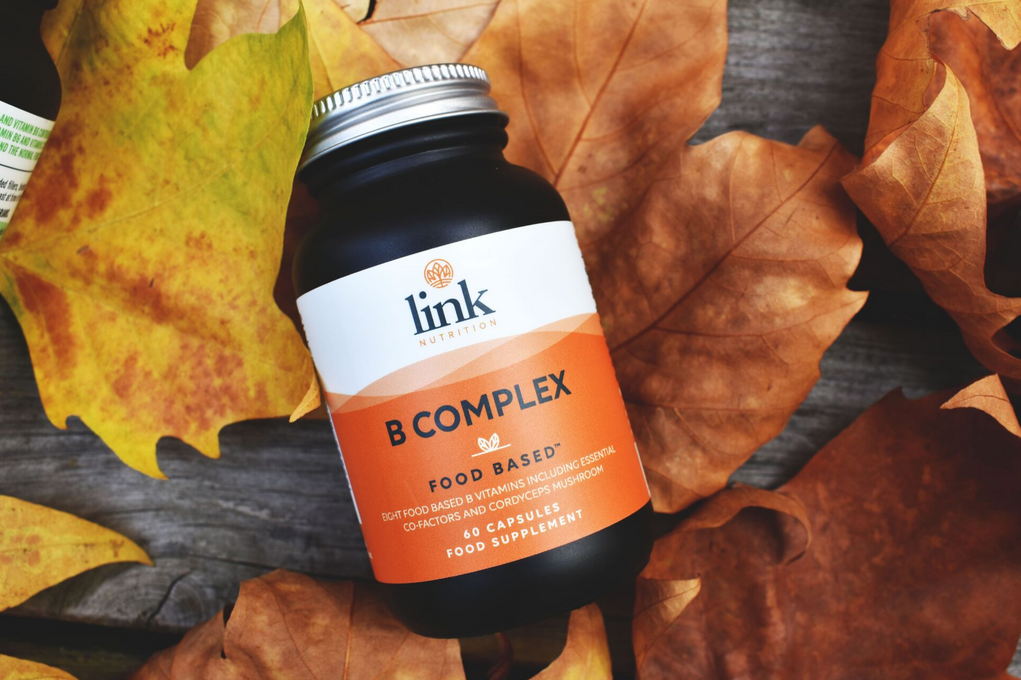The Super B’S: Why we love our B vitamins
17th September 2019 / Ingredients
The Super B’S: Why we love our B vitamins
Emily Shannon

Let’s take a moment to appreciate the B vitamins and all their amazing superpowers. They’re involved in so many essential processes like helping to regulate our metabolism, energy conversion, hormone production, amino acid synthesis, DNA production, the maintenance of hair, skin and nails, and they’re integral within our nervous system. The list could go on….
We know...WOW!!! We’re always blown away at what goes on at a cellular level within our bodies, and we feel very passionately about ensuring our cells have everything they need to do what they gotta do!
So, let’s talk B vitamins. B vitamins are essential and our body requires them daily. B vitamins are water soluble so we need to make sure that we are always keeping our levels topped up and getting our daily dose. Each B vitamin plays an essential role in the maintenance of our health, working in harmony with your body, giving you a boost when you need it the most!
Foods rich in vitamin B
Luckily, B-rich foods are plentiful, especially from whole food sources such as whole grains, nuts, meat and eggs to name just a few. Like with many other vitamins and minerals that our body requires, variety is key, which means more fun in the kitchen! Including foods from all food groups will ensure that you are consuming all of the 8 essential B vitamins. We like to include wholegrains and eggs in our breakfast (poached or scrambled are the favourites here) plus snacking on nuts and seeds throughout the day.
To make things easier, here’s a little B vitamin checklist so you can spot a few foods rich in B vitamins at a glance!
- Eggs
- Nuts
- Seeds
- Dried fruit
- Oats
- Leafy green veg (broccoli, cabbage, spinach)
- Chickpeas
- Fish (cod and salmon are great sources)
Vitamin B and energy
B vitamins play a vital role within energy production within our body. Let’s focus on biotin for example, just one of the essential B vitamins that our body requires. Biotin (B7), alongside other B vitamins contributes to normal energy-yielding metabolism. But what do we mean by this? To make it easier to understand, it’s the B vitamins that we get through our diet that coordinate the metabolism of fats and carbohydrates that we consume to generate the energy that our body uses.
Vitamin B and skin
Who doesn’t want glowing, youthful and bountiful skin! With more and more research highlighting the link between skin and diet, as well as the role that oxidative damage and environmental pollutants play in aging, maximising on the nutrients from your diet is key when it comes to skin health. Evidence suggests that B vitamins, including niacin (B3) and biotin (B7) contribute to the maintenance of our rapidly dividing skin cells. It’s thanks to the maintenance, protection and renewal of our skin cells that helps our skin to remain healthy and fight the ageing process.
Vitamin B and immunity
Vitamin B6, also known as pyridoxine, is the most closely associated with immunity as it is essential for the metabolism of nucleic acids, amino acids and lipids which have a direct influence on the growth of our cells. Studies have shown that deficiency can therefore lead to a reduced number of lymphocytes. It’s lymphocytes (which are a type of white blood cell) that play a key role in our immune response, which keeps us healthy and feeling our best. To keep your levels topped up, include plenty of veggies, whole grains and eggs in your diet!
Link’s B Complex
If your life is hectic, you’re always on-the-go, or you suffer from symptoms such as fatigue, irritability, poor concentration or anxiety, then it is likely that you may benefit from a B vitamin boost. Our B complex is more than just 8 essential B vitamins and their cofactors, it also contains vitamin C with naturally occurring bioflavonoids and cordyceps mushroom, with its adaptogenic properties giving us an energising boost. The addition of vitamin C prevents oxidation of the B vitamins and cordyceps mushroom is known to boost energy as well as having adaptogenic properties. Sounds exciting right? Try it out for yourself here.
From The Blog
-

1st March 2022 / Health / Ingredients
Benefits of Boswellia for joint health
Boswellia might just be the best kept secret for supporting long term joint health, want to find out some of the key benefits of Boswellia? Look no further, let's delve right in! Boswellia is a sp...
Read article -

1st March 2022 / Health / Ingredients
Why magnesium is the wonder mineral for performance
Magnesium is probably one of the most important nutrients for feeling your best every day, yet it’s not talked about often enough. It’s commonly deficient in our diets, with a 2018 study finding th...
Read article -

19th March 2021 / Health / Ingredients
What is hyaluronic acid?
Hyaluronic acid is something of a buzz word when it comes to skin. You’ll find it in skin creams, serums and masks but what actually is it, and how is it good for your skin? We’ve included this mir...
Read article



